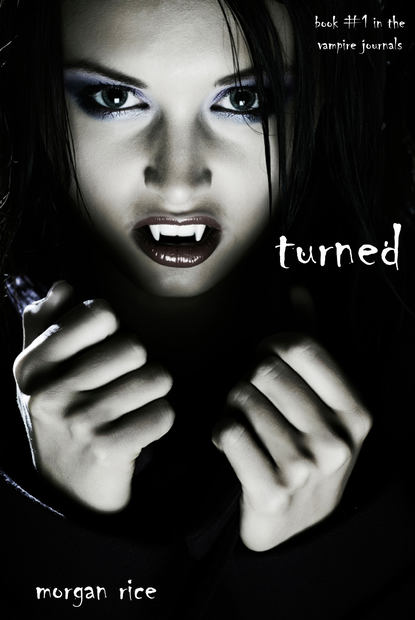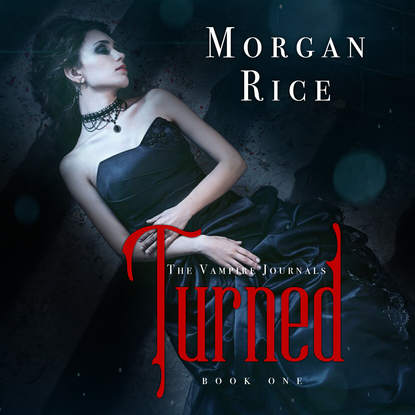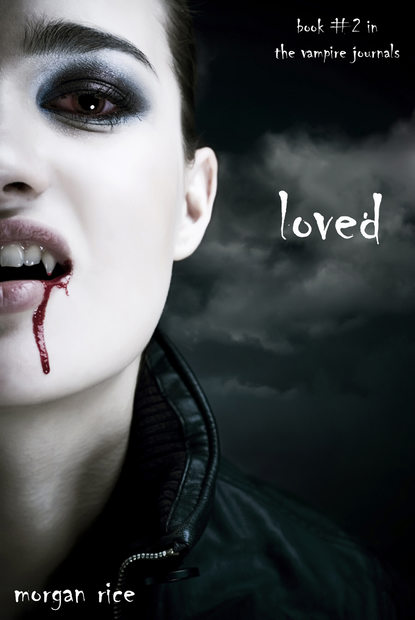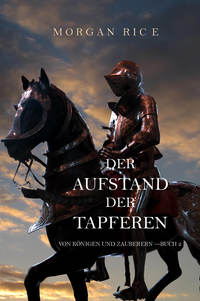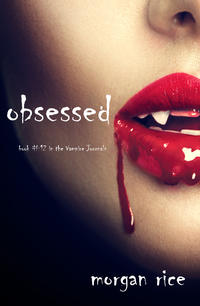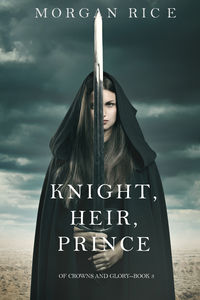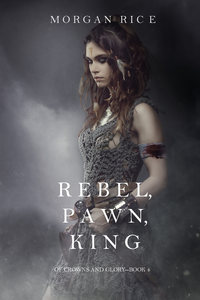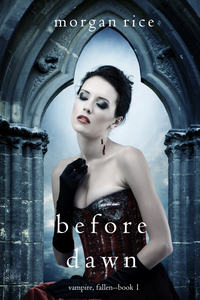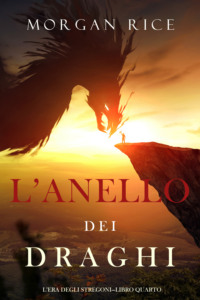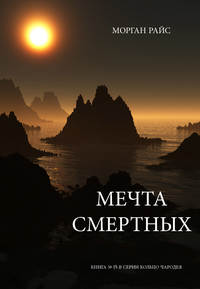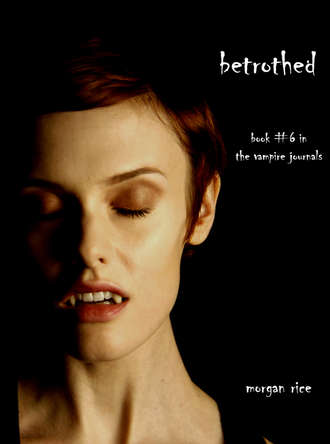
Полная версия
Betrothed
Yet, intermixed with this strange mix of farmland and grand estates, was also the occasional feat of architecture. Caitlin was amazed to see, here and there, some buildings she actually recognized from pictures from the 21st century, ornate churches, and an occasional palace.
The road came to an abrupt halt in a large, arched gateway, several guards standing before it in uniform, standing at attention, holding lances. The gate was open, though, and they walked through.
A sign etched into stone read “Whitehall Palace,” and they continued through its long, narrow courtyard, then through another arched gate and out the other side, and back onto the main road. They soon approached a circular intersection with a sign that read “Charing Cross,” and a large vertical monument in its center. The road forked to the left and to the right.
"Which way?" she asked.
Caleb seemed as overwhelmed as she did. Finally, he said, “My instincts tell me to stay close to the river, and fork to the right.”
She closed her eyes, and tried to feel it, too. "I agree," she said, then added, "Do you have any idea exactly what it is we are looking for?"
He shook his head. "Your guess is as good as mine.”
She looked down at her ring, and read the riddle aloud once again.
Across the Bridge, Beyond the Bear,With the Winds or the sun, we bypass London.It didn't ring any bells for her, and it didn't appear to ring any for Caleb either.
"Well, it mentions London," she said, "so I feel like we’re on the right track. My instinct tells me that we have to proceed further, deeper into the city, and that we’ll know it when we see it.”
He agreed, and she took his hand, and they forked right, heading parallel to the river, following a sign that read “The Strande.”
As they continued along this new street, she noticed that the area was getting more and more dense, with more houses built close to each other, on both sides of the street. It felt like they were getting closer to the center of town. The streets were becoming more crowded, too. The weather was perfect – it felt like an early fall day to her, and the sun shone steadily. She briefly wondered what month it was. It amazed her how she had lost track of time.
At least it wasn't too hot. But as the streets became more and more filled with people, she was beginning to feel claustrophobic. They were definitely approaching the center of a huge, metropolitan city, even if it didn’t have the modern-day sophistication. She was surprised: she had always imagined the old times to have less people, to be less crowded. But if anything, the opposite was true: as the streets became more and more packed, she couldn't believe how crowded it was. It reminded her of being back in New York City in the 21st century. People elbowed and jostled and didn't even look back to apologize. They also stank.
Adding to the scene, on every corner were street peddlers, aggressively trying to sell their wares. In every direction, people shouted out, in funny British accents.
And when the voices of the peddlers died down, other voices dominated the air: those of preachers. Everywhere, Caitlin saw makeshift platforms, stages, soapboxes, pulpits, on which preachers stood and preached their sermons to the masses, shouting to be heard.
"Jesus says REPENT!" yelled one minister, standing there with a funny top hat and a stern gaze, looking down at the crowd in a sweeping gaze. "I say that ALL THEATRES must be shut down! All idle time must be FORBIDDEN! Return to your houses of worship!”
It reminded Caitlin of the people who preached from street corners in New York City. In some ways, nothing had changed.
They came to another gateway, right in the middle of the street, with a sign that read “Temple Barre, City Gate.” Caitlin was amazed that cities actually had gates. The large, imposing gate was open, for people to pass right through, and Caitlin wondered if they closed it at night. On either side stood more guards.
But this gate was different: it seemed to also be a gathering place. A large crowd huddled around it, and way up high, atop a small platform, a guard stood holding a whip. Caitlin looked up and was amazed to see that a man, chained and barely clothed, was tied to a whipping post. The guard reached back and lashed him again and again, and the entire crowd oohed and aahed at the sight.
Caitlin surveyed the faces of the crowd, and couldn’t believe how indifferent they seemed, as if this were an ordinary, everyday occurrence, as if it were a popular form of entertainment. She felt anger well up inside her at the barbarism of this society, and she nudged Caleb. He was also riveted to the scene, and she took his hand and hurried through the gate with him, forcing herself not to look. She feared that if she dwelled on it too much, she would be unable to stop herself from attacking the guards.
“This place is barbaric,” she said, as they gained distance from the grizzly sight and the sounds of the whip grew fainter.
“Terrible,” he agreed.
As they continued onward, she tried to put the image out of her head. She forced herself to focus her attention elsewhere. She looked up at a street sign, and saw that the name of the street they were walking on had changed, to “Fleet Street.” As they walked, the streets became even more crowded, more condensed, and the buildings and numerous rows of wooden houses were built even closer to each other. This street was also lined with various stores. One sign read: “Shave for a Penny.” Before another shop dangled a blacksmith's sign, with a horseshoe hanging in front of it. Another sign read, in large letters, “Horse Saddles.”
"Need a new horseshoe, Miss?" a local shopkeeper asked Caitlin as they walked by.
She was caught off guard. "Um… no thanks," she said.
"How about you, Sir?" persisted the man. "Want a shave? I’ve got the cleanest blades on Fleet Street.”
Caleb smiled back at the man. "Thank you, but I'm okay."
Caitlin looked at Caleb, and realized how clean-shaven he looked, all the time. His face was so smooth, it looked like porcelain.
As they continued down Fleet Street, Caitlin couldn't help noticing how the crowd had changed. It became more seedy here, with several people openly drinking from flasks and glass bottles, stumbling about, laughing too loudly, and openly leering at women.
"GIN HERE! GIN HERE!" yelled out a boy, hardly older than ten, holding a crate filled with small green bottles of gin. “GET YOUR BOTTLE! TWO FARTHINGS! GET YOUR BOTTLE!”
Caitlin got jostled again, as the crowd grew increasingly thick. She looked over and saw a group of women, with too much makeup, dressed in heavy clothing with tons of fabric, and with their shirts pulled down low, revealing most of their breasts.
"Want a good time?" one of the women yelled out, clearly drunk, wobbling on her feet. She approached a passerby, who roughly pushed her off.
Caitlin was amazed at how rough this part of town was. She felt Caleb instinctively come closer, putting his hand around her waist, and she could feel his protectiveness. They picked up their pace and continued quickly through the crowd, and Caitlin looked down and checked that Ruth was still by their side.
The street soon ended in a small foot bridge, and as they walked over, Caitlin looked down. She saw a large sign that read “Fleet Ditch,” and was amazed at the sight. Below them was what looked like a small canal, maybe ten feet wide, completely flowing with murky water. Amidst this water bobbed all sorts of garbage and refuse. As she looked up, she saw people urinating into it, and saw others throwing pots of excrement, chicken bones, household refuse, and all sorts of debris. It looked like an immense, flowing sewer, carrying all the waste of the city downstream.
She looked to see where it lead, and saw that, far off in the distance, it led into the river. She turned her head away at the smell. It was probably the worst thing she had ever smelled in her life. Toxic gases rose up, and made the awful smell of the streets seem like roses in comparison.
They hurried over the bridge.
As they crossed to the other side of Fleet Street, Caitlin was relieved to see that the street finally opened up, and became a little less condensed. The smell, too, faded. And after the horrific smell of Fleet Ditch, the everyday street smells no longer bothered her. She realized that that was how people lived happily with these conditions: it was all about what you got used to, in context of the time you lived.
As they walked, the neighborhood became nicer. They passed a huge church on the left, and etched into the stone edifice, in neat calligraphy, were the words: “Saint Paul's.” It was a massive church, with a beautiful ornate façade, reaching high into the sky, towering over all the buildings around it. Caitlin marveled at how beautiful its architecture was, that such a building could still fit in perfectly in the 21st century. It felt so out of place, towering above all the small wooden architecture around it. Caitlin was beginning to see just how much churches dominated the urban landscape of this time, and just how important they were to its people. They were literally omnipresent. And their bells, so loud, were always ringing.
Caitlin paused before it, studying its ancient architecture, and couldn’t help but wonder if perhaps some clue lay for them inside.
"I wonder if we should go in?" Caleb asked, reading her mind.
She studied her ring’s inscription once again.
Across the bridge, Beyond the Bear.
"It mentions a bridge," she said, thinking.
“We just crossed a bridge," Caleb answered.
Caitlin shook her head. It didn't feel right to her.
"That was just a foot bridge. My instinct tells me this is not the place. Wherever it is we need to go, I don't feel it is here.”
Caleb stood there and closed his eyes. Finally, he opened them. "I don't feel anything either. Let's move on.”
"Let's get closer to the river," Caitlin said. “If there's a bridge to be found, I assume it would be by the river. And I wouldn't mind some fresh air.”
She spotted a side road leading down to the riverfront, with a crudely marked sign that read "St. Andrews Hill.” She took Caleb's hand and led him towards it.
They walked down the gently sloping road, and she could see the river in the distance, bustling with boat traffic.
This must be London’s famous Thames River, she thought. It had to be. She remembered at least that much from her basic geography class.
This street ended in a building, not taking them all the way down to the river, so they turned left on a street that ran close to the river, parallel to it, only fifty feet away, aptly named "Thames Street.”
Thames Street was even more genteel, a world apart from Fleet Street. The houses were nicer here, and to their right, along the riverside, sat more grand estates, with huge plots of land sloping down to the riverfront. The architecture was more elaborate and more beautiful here, too. Clearly this part of town was reserved for the rich.
It felt like a quaint neighborhood, as they passed many twisting and turning side streets with funny names, like “Windgoose Lane” and “Old Swan Lane” and “Garlick Hill” and “Bread Street Hill.” In fact, the smell of food was in the air everywhere, and Caitlin felt her stomach growl. Ruth whined, too, and she knew she was hungry. But she didn't see any food for sale.
"I know, Ruth," Caitlin sympathized. “I'll find us food soon, I promise.”
They walked and walked. Caitlin didn't know exactly what she was looking for, and neither did Caleb. It still felt as if the riddle could lead them anywhere, and they didn't have any concrete leads. They were getting deeper into the heart of the city, and she still wasn't sure which way to turn.
Just as Caitlin was beginning to feel tired, hungry, and cranky, they came to a huge intersection. She stopped and looked up. A crude, wooden sign read “Grace Church Street.” The smell of fish was heavy in the air here.
She stopped in exasperation and faced Caleb.
"We don't even know what we’re looking for," she said. "It mentions a bridge. But I haven't seen a single bridge anywhere. Are we just wasting our time here? Should we be thinking about this a different way?”
Caleb suddenly tapped her on her shoulder, and pointed.
She slowly turned, and was shocked at the sight.
Grace Church Street lead down to a massive bridge, one of the biggest bridges she had ever seen. Her heart soared with new hope. A huge sign above it read “London Bridge,” and her heart beat faster. This street was wider, a major artery, and people, horses, carts and traffic of all kind funneled onto and off the bridge.
If a bridge was truly what they were looking for, clearly they had found it.
* * *Caleb took her hand and led her towards the bridge, merging with the traffic. She looked up, and was overwhelmed at the sight. It was unlike any bridge she had ever seen. Its entrance was heralded by a huge, arched gate, with guards on either side. At its top were multiple spikes, on which sat severed heads, blood dripping from their throats, impaled on the spikes. It was a gruesome sight, and Caitlin averted her gaze.
"I remember this," sighed Caleb. “From centuries ago. This is how they always adorned their bridges: with heads of prisoners. They do it as a warning to other criminals.”
"It's horrific," said Caitlin, as she lowered her head, and they walked quickly onto the bridge.
At the base of the bridge, booths and vendors were selling fish, and as Caitlin looked over, she could see boats pulling up, and workers carrying the fish up the muddy banks, slipping as they went. The entryway to the bridge stank of fish, so much so that she had to hold her nose. Fish of every type, some still moving, were laid out on small, makeshift tables.
“Snapper, three pence a pound!" someone yelled out.
Caitlin hurried past, trying to get away from the smell.
As they went, the bridge surprised her again, as she discovered that it was filled with shops. Small booths, vendors, lined the bridge on either side, as foot traffic, livestock, horses and carriages squeezed in the middle. It was a chaotic, crowded scene, with people calling out in every direction, selling their wares.
"Tannery here!" someone yelled out.
"We'll skin your animal!" yelled another.
“Candle wax here! The finest candle wax!”
“Roof thatching!”
“Get your firewood here!”
“Fresh quills! Quills and parchment!”
As they progressed further, there were nicer shops, some selling pieces of jewelry. Caitlin couldn’t help but think of the gold bridge in Florence, of her time with Blake, of the bracelet he had bought her.
Momentarily overwhelmed with emotion, she drifted off to the side, held onto the railing, and looked out. She thought of all the lifetimes she’d already lived, all the places she’d been, and felt overwhelmed. Was this all really true? How could one person have lived so many lives? Or would she just wake up from all of this, back in her apartment in New York City, and think that this had all just been the longest, craziest dream of her life?
"Are you okay?" Caleb asked, coming up beside her. "What is it?”
Caitlin quickly wiped back a tear. She pinched herself, and realized that she was not dreaming. It was all real. And that was most shocking of all.
“Nothing," she said quickly, putting on a forced smile. She hoped he hadn’t been able to read her thoughts.
Caleb stood beside her, and together, they looked out, right down the middle of the Thames. It was a wide river, and completely congested with traffic. Sailboats of every size navigated their way through, sharing the waters with rowboats, fishermen’s boats, and every type of vessel. It was a bustling waterway, and Caitlin marveled at the size of all the different craft and sails, some climbing dozens of feet into the air. She marveled at how quiet the waters were, even with so many vessels in it. There were no sounds of engines, no motorboats. There was just the sound of the canvas flapping in the wind. It relaxed her. The air up here, with the constant breeze, was fresh, too, finally free of smells.
She turned to Caleb and they continued strolling back down the bridge, Ruth at their heels. Ruth started whining again, and Caitlin could feel her hunger, and wanted to stop. But everywhere she looked, she still could not find any food. She was getting hungrier herself.
As they reached the middle of the bridge, Caitlin was shocked, once again, at the sight before her. She didn't think that there’d be anything left to shock her after seeing those heads on the pikes – but this did.
Right there, in the center of the bridge, three prisoners stood up on a scaffold, nooses around their necks, blindfolded, barely clothed, and still alive. An executioner stood behind them, wearing a black hood, slits for his eyes.
"The next hanging is at one o’clock!” he screamed out. A thick and gathering crowd huddled around the scaffold, apparently waiting.
"What did they do?" Caitlin asked one of the crowd members.
"They were caught stealing, Miss," he said, not even bothering to look her way.
“One was caught slandering the Queen!” an old lady added.
Caleb led her away from the gruesome sight.
“Watching executions seems to be a daily sport around here," Caleb commented.
“It's cruel," Caitlin said. She marveled at how different this society was from the modern day, at how much tolerance it had for cruelty and violence. And this was London, one of the most civilized places of 1599. She could hardly imagine what the world was like outside of a civilized city like this. It amazed her how much society, and its rules, had changed.
They finally finished crossing the bridge, and as they stood at its base, on the other side, Caitlin turned to Caleb. She looked at her ring, and read aloud again:
Across the Bridge, Beyond the Bear,With the Winds or the sun, we bypass London."Well, if we’re following this correctly, we’ve just ‘crossed the bridge.’ Next would be ‘Beyond the Bear.’” Caitlin looked at him. “What could that mean?"
“I wish I knew," he said.
"I feel as if my father is close," Caitlin said.
She closed her eyes, and willed a clue to come along.
Just then, a young boy, carrying huge pile of pamphlets, hurried past them, shouting as he went. "BEAR BAITING! Five pence! This way! BEAR BAITING! Five pence! This way!”
He reached out and shoved a flyer into Caitlin's hand. She looked down, and saw, in huge letters, the words “Bear Baiting,” with a crude picture of a stadium.
She looked at Caleb, and he looked at her at the same time. They both watched the boy as he began to disappear down the road.
“Bear baiting?" Caitlin asked. “What's that?”
“I remember now,” Caitlin said. “It was the big sport of the time. They would put a bear in a circle, and tie him to a stake, and bait him with wild dogs. They take bets on who wins: the bear or the dogs.”
"That's sick," Caitlin said.
"The riddle,” he said. “‘Across the bridge, and Beyond the Bear. Do you think that could be it?”
As one, they both turned and followed the boy, now off in the distance, still shouting.
They made a right at the base of the bridge and walked along the river, now on the other side of the Thames, heading down a street named "Clink Street." This side of the river, Caitlin noticed, was very different from the other. It was less built up, less populated. The houses were also lower here, more crude, this side of the river more neglected. There were certainly fewer shops, and thinner crowds.
They soon came upon a huge structure, and Caitlin could tell, from the bars on the window and the guards standing outside, it was a prison.
Clink Street, Caitlin thought. Aptly named.
It was a huge, sprawling building, and as they passed, Caitlin saw hands and faces sticking out of the bars, watching her as she went. Hundreds of prisoners were crowded in there, leering out at her, yelling crude things as they passed.
Ruth growled back, and Caleb came closer.
They walked further, passing a street with a sign that read “Dead Man's Place.” She looked to her right and saw another scaffold, with another execution being prepared. A prisoner, shaking, stood on a platform, blindfolded, a noose around his neck.
Caitlin was so distracted, she almost lost sight of the boy, as she felt Caleb grab her hand and guide her further down Clink Street.
As they continued, Caitlin suddenly heard a distant shout and then a roar. She saw the boy, in the distance, turn the corner, and heard another shout rise up. She then was surprised to feel the earth shake beneath her. She hadn't felt anything like that since the Roman Colosseum. She realized that there must be a huge stadium of some sort just around the bend.
As they turned the corner, she was astonished by the sight before her. It was a huge, circular structure, looking like a miniature Colosseum. It was built several stories high, and closed off from view, but in each direction there were arched doors leading into it. She could hear the shouts, louder now, clearly coming from behind its walls.
Before the building milled hundreds of people, some of the most seedy people she had ever laid eyes upon. Some were barely dressed, many had huge bellies sticking out, unshaved and unbathed. Wild dogs roamed amidst them, and Ruth growled, the hairs on her back standing up, clearly on edge.
Vendors pushed carts in the mud, many selling pints of gin. From the looks of the crowd, it seemed most people partook. The crowd jostled each other roughly, and most of them looked drunk. Another roar rose up, and Caitlin looked up and saw the sign hanging over the stadium: “Bear Baiting.”
She felt sick to her stomach. Was this society really so cruel?
The small stadium seemed to be part of a complex. There, in the distance, sat another small stadium, with a huge sign which read “Bull Baiting.” And there, off to the side, set apart from these two, was another large circular structure – although this one looked different from the others, classier.
"Come see the new Will Shakespeare play in the new Globe Theatre!" yelled out a passing boy, holding a stack of pamphlets. He walked right up to Caitlin, and shoved a pamphlet into her hands. She looked down and it read: “the new play by William Shakespeare: The Tragedy of Romeo and Juliet.”
"Will you come, Miss?" the boy asked. "It's his new play, and it's going to be performed for the first time in this brand-new theater: the Globe.”
Caitlin looked down at the pamphlet, feeling a rush of excitement. Could this be real? Was this really happening?
“Where is it?" she asked.
The boy chuckled. He turned and pointed. "Why, it's right over there, Miss.”
Caitlin looked to where he was pointing, and saw a circular structure in the distance, with white stucco walls and a Tudor wooden trim. The Globe. Shakespeare's Globe. It was incredible. She was really here.
In front of it, thousands of people were milling about, entering from all directions. And the crowd looked just as rough as the crowd entering the bullbaiting and bearbaiting. That surprised her. She had always imagined Shakespeare theatergoers to be more civilized, more sophisticated. She had never really considered that it was entertainment for the masses – and the crudest type of masses at that. It seemed to be right up there with bearbaiting.
Yes, she would love to see a new Shakespeare play, love to go to the Globe. But she felt determined to fulfill her mission first, to solve the riddle.
A new roar arose from the bearbaiting stadium, and she turned and focused her attention back on it. She wondered if the answer to the riddle lay just beyond its walls.
She turned to Caleb.
"What do you think?" she asked. “Should we see what it's about?”
Caleb looked hesitant.
“The riddle did mention a bridge,” he said, “and a bear. But my senses are telling me something else. I'm not quite sure – ”
Suddenly, Ruth growled, then took off, sprinting away.
"Ruth!" Caitlin yelled.
She was gone. She didn't even turn back to listen, and she sprinted for all she was worth.
Caitlin was shocked. She had never see her behave that way, even in times of utmost danger. What could possibly pull her so much? She had never known Ruth not to listen.


